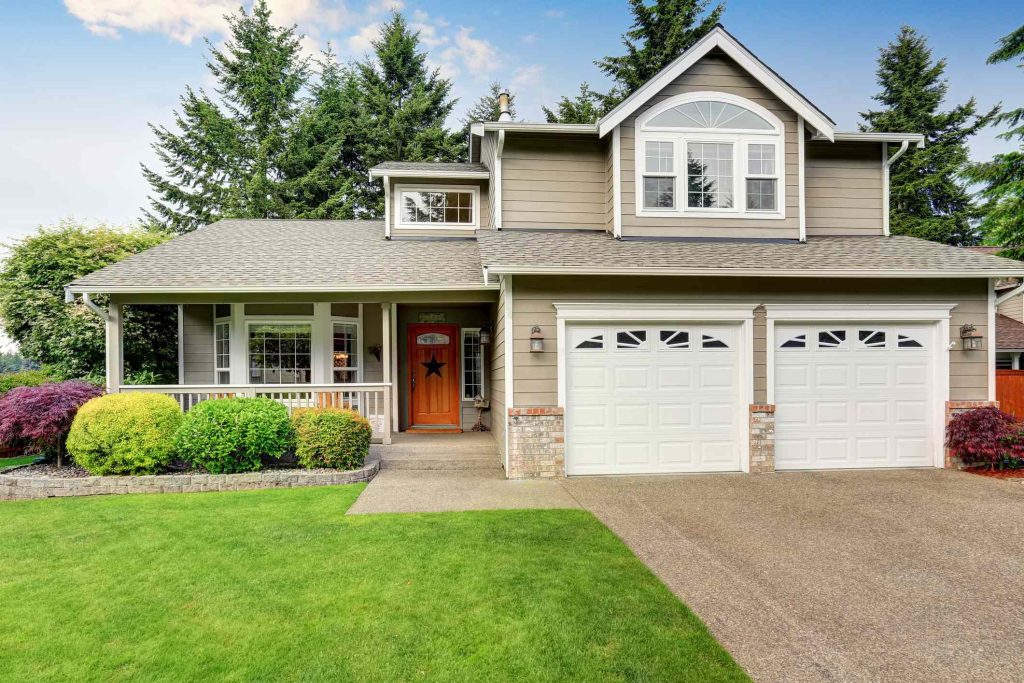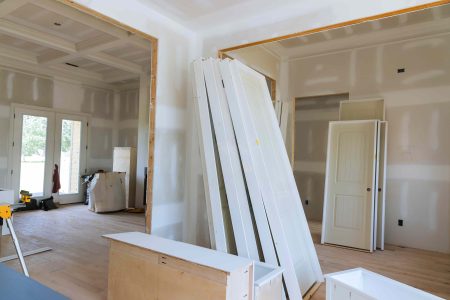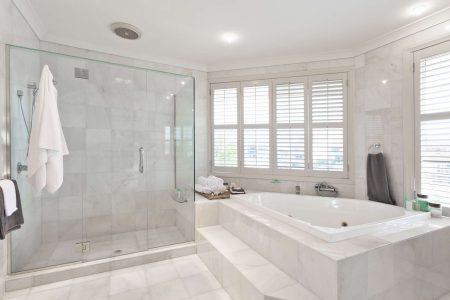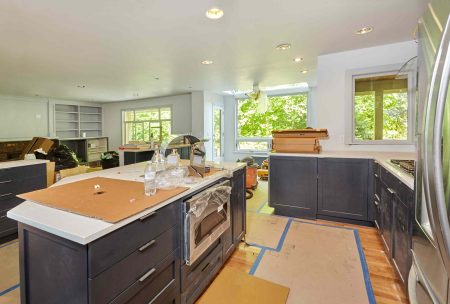If you’re embarking on a home renovation, you should avoid renovations that detract from storage space, reduce functionality, and negatively impact the resale value, like converting a garage into a living space. Garage conversions may seem to make sense at first, but we asked contractors which home reno homeowners regretted most, this project came up as the number one regret.
Find out more about why homeowners regret garage conversions and what contractors suggest to help you avoid renovation regrets.
Meet the Expert
Jacob Naig is a licensed contractor and real estate agent, as well as the owner of We Buy Houses In Des Moines.
Why Homeowners Regret Garage Conversions
A garage conversion is essentially a project to take the garage and turn it into a livable space. This typically includes installing insulation, adding new walls, painting, updating the lighting, putting in flooring, and furnishing the space.
They may also involve removing the existing garage door, installing a more standard door, installing heating and cooling systems, and even putting in plumbing.
Each step in the process is time consuming, costly, and may come with regulatory hurdles. Yet, by the end of the project, and even sometimes during the renovation, many homeowners regret ever investing the time, effort, and money into this home reno.
“Turning garages into living space reduces storage space, functionality, and resale appeal, especially in places where people prize covered parking,” says Jacob Naig, licensed contractor, real estate agent, and owner of We Buy Houses In Des Moines.
Want more home reno project tips and inspiration? Sign up for our free daily newsletter for the latest how-tos, reno guides, and more!
Don’t Miss
Loss of Functionality
One of the main reasons homeowners regret converting the garage into a living space is the loss of functionality. Not only do you lose out on ample storage room, but you lose a dedicated space for your vehicles.
“People tend to regret not having a garage when they’re scraping ice off of their car in January,” adds Naig.
Additionally, a garage often serves as a workshop for projects and hobbies, but with the space converted you may experience significant inconveniences the next time you want to take on a DIY job.
You may also regret a garage conversion if the newly converted space is underutilized or becomes unnecessary at a later date.
Unexpected Costs and Effort
Converting a garage is not a small project by any means, especially if the intent is to make it comfortable and livable, so you can expect to invest a significant amount of money for insulation, flooring, windows, structural changes, and more.
“Regret is almost always a result of expectations gone awry,” Naig says. “A renovation can suck up cash, time and enthusiasm, and if it doesn’t give a homeowner daily utility or resale value, the glint fades fast.”
You may also run into problems with obtaining the necessary permits, complying with local zoning laws, and complying with local building codes, making the project more trouble than it’s worth.
Impact on Home Value and Resale
Many buyers are actively looking for properties that have a garage because it’s such a key area for dedicated vehicle space, tool and equipment storage, and a convenient area to work on DIY projects.
By converting the garage to a living space, you are essentially decreasing the appeal and value of the property.
“Renovation is about finding a balance between personal enjoyment and market sensibility, and it’s easy to tip too far toward one or the other,” Naig says.
In some cases, the conversion may not be well-planned or executed, causing it to look like a separate, poorly integrated part of the home, which further decreases the aesthetic and functional appeal of the property.
Comfort and Livability Issues
When you undertake a project to convert a garage into a livable area, you need to be prepared to spend a significant amount of time and money to make serious changes to the space to make it comfortable.
Ultimately, the space may end up unused because it simply isn’t comfortable enough for a home office or spare bedroom.
This may seem like a minor issue at first, but it can make the converted space uncomfortable and may even lead to the finished materials and furnishings getting damaged by fluctuating temperatures and humidity levels.
“People commonly rue an odd special project, like converting the garage, when the space goes unused,” Naig says.
In addition to temperature and humidity problems, the thin walls or close proximity to the street can lead to noise problems, reducing the privacy and livability of the converted garage.
How to Avoid Renovation Regrets
Before you begin a renovation project, there are a few key points to consider to ensure that you won’t end up regretting your decision.
“Renovations can be a terrible idea if they don’t mesh well with resale value, if they surpass what’s standard in your neighborhood, or if they cause you to take on ongoing maintenance that you didn’t expect,” Naig says.
In order to minimize the risk of renovation regret, you should keep the following in mind:
- Focus on long-term value: Go with projects that are almost certain to result in a positive return on your investment, like minor kitchen or bathroom remodels.
- Choose common over niche designs: You may have very specific concepts for the home, but if you plan to sell it any time in the near future, select finishes and materials that have broad, long-lasting appeal.
- Plan and budget thoroughly: Take all the time you need to properly research the project you have in mind, then build a budget and a realistic timeline that will be adequate for accomplishing your goals.
- Functionality first: Instead of focusing on aesthetics or niche uses, you should always put the functionality of the home first because even if an upgrade looks good, if it detracts from the function of the home, you will likely come to regret it.
- Hire pros for complicated projects: Don’t try to handle everything yourself. You may think you are saving money, but a poor reno stands out so much that it can actually lower the value of the property. Instead, for critical tasks and complex projects, hire a pro to complete the work.
Read the full article here









